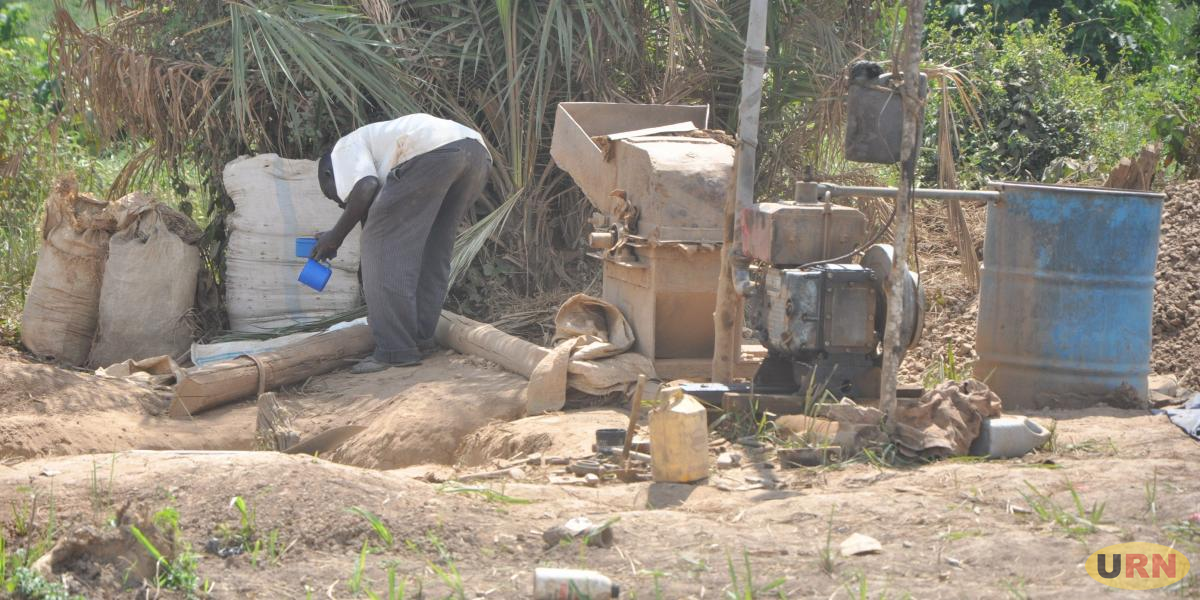Over 30,000 artisanal and small-scale miners, pit owners, mineral processors and dealers face yet another mass eviction from Kassanda district.
The group under Kitumbi Small Scale and Artisanal Miners’ Association has been given up to November 3, 2021, to voluntarily vacate the place or be forcefully evicted. They are operating in a mining area covering over 8.716 square kilometres which were licensed in 2002 to Kisita Mining Company.
But according to a letter signed by the Minister in charge of Mineral Development, Peter Lokeris, the move is part of the steps being taken to implement presidential directives to organize and streamline the mining sector.
“…the president directed that all artisanal and illegal miners should be sensitized and given an opportunity to voluntarily vacate the area to avoid further depletion of the resources and allow for organisation of the mining sector,” the letter reads.
Lokeris adds that following a presidential directive issued in October last year, the groups were sensitized about the voluntary vacation from the area but they failed to comply forcing the president to issue another directive in May this year.
In 2017, there was a mass eviction of equally a similar number of people from gold mines in the same areas still following another presidential directive.
However, Rahim Mukasa Kayondo, the chairperson of Kitumbi Small Scale and Artisanal Miners’ Association is protesting the planned activity noting that they cannot be evicted since they are shareholders in the company was legally licensed to carry out prospecting, exploration, and mining of gold in the area.
“They can not say that we are illegal. We are a shareholder of Kisita Mining Company,” Kayondo says adding that, “the company has managerial issues which are being blown out of proportion by some interested parties and misleading the president.”
Shareholders in the said company included United Arab Emirates-based investor Rashed Alsuwaid of Horizon Energy Ltd, renowned banker Abbas Mawanda, former MP Muyanja Mbabali, businessman Amos Nzeyi, the Maviri Family, and USU Group.
In a recent interview, a source privy to the matter told URN that at the time of purchasing the shares, the company was already facing internal conflicts where the local shareholders were jostling with the UAE investor.
“Conflicts were arising from the way the investor had acquired the shares and his management style. As a result, each shareholder informally sent artisanal miners to take on their respective interests. that’s how artisans entered the mining areas. It was around 2016,” the source noted.
The source adds that local businessmen dragged the investor to court and in retaliation, the latter also reported the matter to the Statehouse noting that there are people sabotaging their investment. the matter was at one time handled by the Statehouse Anti-Corruption Unit.
Minister Lokeris says that during the conflict between shareholders, other players including Artisanal Miners’ took advantage to infiltrate the mining area purporting to be part of the shareholders of Kisita Mining Company.
“In a bid to regulate the mining operation of Kisita, the Ministry suspended the mining license for six months to allow the management to resolve managerial issues. Despite the suspension of the license, the number of miners kept on increasing to the assumed 30,000 people,” the minister says.
Even though the ministry refutes the fact that artisanal miners are stakeholders in the company, documents are indicating that Kitumbi Small Scale and Artisanal Miners’ Association acquired five per cent shares in Kisita Mining Company. The shares were obtained from the former mineral minster Richard Henry Kaijuka at 63 million Shillings.





